Technically Fiction
Finding facts in the fantastic
-
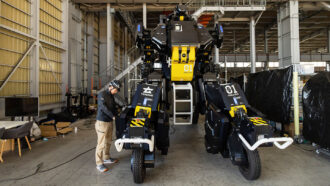 Tech
TechCould we build a mecha?
In the movies, mechas come equipped with all kinds of abilities. But real giant robots would first have to master simpler actions, like walking and jumping.
-
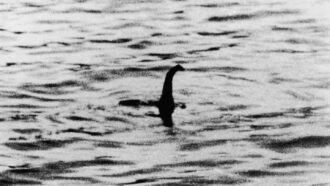 Animals
AnimalsHave you seen Bigfoot or the Loch Ness Monster? Probably not
Floe Foxon is a data scientist by day. In his free time, he applies his skills to astronomy, cryptology and sightings of mythical creatures.
By Meghan Rosen -
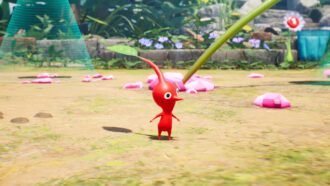 Animals
AnimalsPikmin’s plant-animal mashups don’t exist — but sun-powered animals do
Corals team up with photosynthetic zooxanthellae. Some sea slugs steal chloroplasts. How might animals and plants team up in Nintendo’s Pikmin games?
-
 Tech
TechHow to prevent the robot replication apocalypse
Today’s bot-building robots aren’t set on world domination. But scientists and philosophers want to keep future tech in check.
By Skyler Ware -
 Animals
AnimalsWhere does Godzilla get his atomic breath?
Some secrets of the kaiju’s atomic breath can be explained with creative applications of physics and biology.
-
 Tech
TechCould Star Trek replicators exist?
Experts break down what’s possible and what’s not for this classic science-fiction invention.
-
 Oceans
OceansHow would a mermaid sound underwater?
Human ears don’t work well in the water. A mermaid would need marine creature features to talk to and understand her aquatic friends.
-
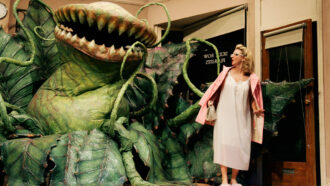 Plants
PlantsCould a plant ever eat a person?
For now, humans aren’t on the menu for carnivorous plants. But what would it take for one to consume a person?
-
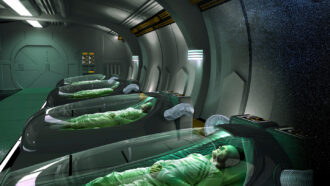 Health & Medicine
Health & MedicineHumans might be able to hibernate during space travel
Scientists are studying how animals hibernate and developing new technologies to help humans sleep through space travel.
-
 Animals
AnimalsPokémon ‘evolution’ looks more like metamorphosis
Pokémon “evolve” into larger, more powerful forms within seconds, but this evolution more closely resembles another biological process — metamorphosis.
-
 Tech
TechCan we build Baymax?
Baymax may be science fiction, but soft robotics is not. Experts break down Baymax’s parts and show what’s coming in the future.
-
 Animals
AnimalsHow can Baby Yoda be 50 years old?
Animals with wings, big bodies or other protections from predators are more likely to evolve long lifespans.